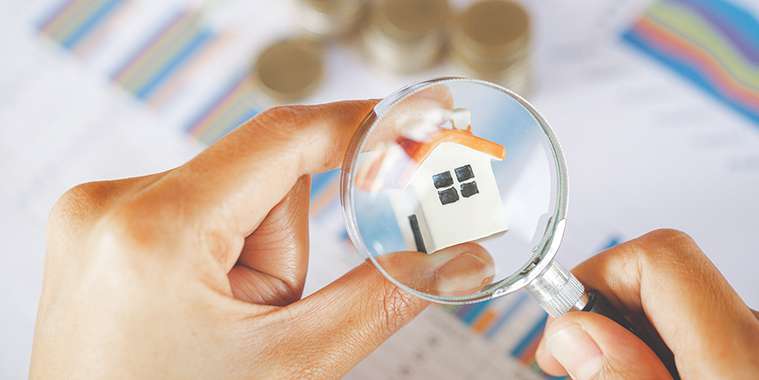Have you ever wondered how much your property’s value has changed since you purchased it? Home appraisals can play a big role. Let’s break down the appraisal process — what it means, when it happens, and other important factors you need to know.
What is a home appraisal?
An appraisal is a process to determine how much money a property is worth. It sounds simple in theory, but a lot goes into determining the appraised value of a piece of real estate.
Valid appraisals must be conducted by a licensed appraiser — a third-party professional who’s unbiased towards the sale. Appraisers are required to hold a license in New Brunswick and Nova Scotia, but other provinces may have different requirements. In Manitoba, a real estate appraiser receives their license from the Manitoba Real Estate Association (MREA).
Typically, appraisals are ordered by your bank or mortgage lender. But if you’re in charge of finding your own appraiser, make sure to do your due diligence. To find a licensed appraiser in your area, you can go to the Appraisal Institute of Canada website at aicanada.ca and use their search tool.
What does an appraiser look at?
The first step of any appraisal process is making an appointment for an inspection. The appraiser will look at several factors, including:
• The property itself Your appraiser will want to look at the inside and outside of your home to determine what amenities are available and the condition of the property. They’ll note the number of bedrooms, bathrooms, living areas, what kind of appliances are in the home, as well as the finishes and materials used to build the home. They’ll also consider the exterior of the home, including the size and condition of the front and back yards, the number of parking spaces, and the health of the windows, siding and roofing.
• The current real estate market The value of properties fluctuates over time, so overall market conditions also play a role in real estate appraisal. Your appraiser will look at the value of similar properties nearby to get a better idea of trends more specific to your local market.
• Your home’s location The value of a home isn’t just about the structure itself — it’s also influenced by what’s around the home and how the property fits with the surrounding structures. For example, nearby parks, schools, retailers, community centres and other amenities can boost property value.
When do I need an appraisal?
You can hire an appraiser to come look at your property any time if you’re curious about the value of your home, but there are two main reasons someone would look for their home to be appraised.
1. When buying or selling a home
Purchasing a home is one of the top reasons appraisals happen, since the value of your home will affect your property tax and mortgage. Banks and mortgage lenders often require appraisals as part of their due diligence. They’re taking a risk by lending you money, so it’s important to verify the value of a home before approving a mortgage. If you purchase a home for a price much higher than what the home appraisal comes in at, lenders will typically only lend on the appraised value of the home rather than the purchase price.
While it’s often the bank or lender that orders an appraisal, the cost may fall on the buyers. Typically, the cost of a home appraisal in Canada is between $300 and $600. The price of an appraisal depends on how large the property is, where it’s located and whether it’s considered a luxury home. Luxury homes are typically very large homes with high-quality finishes, and they’re often located in remote areas. If your appraiser has to spend more time travelling to your home or assessing its value on location, that can add to the cost.
Pro tip: Larger banks and brokers sometimes cover appraisal costs, so don’t be afraid to ask about this possibility!
If you’re looking to sell your home, it’s best to speak with your REALTOR® as they can provide you with insights into the current market conditions that may affect the value of your home.
2. When refinancing your mortgage
Refinancing your mortgage can be beneficial if you’re looking to secure a better interest rate. Some refinances require a home appraisal to determine if the current balance of your mortgage is more than the property’s value — your bank or lender may call for an appraisal in order to ensure its worth is enough to secure your new loan.
Not all refinances require an appraisal, so make sure to talk to your bank or lender to see if it’s necessary.
What’s the difference between appraised value and market value?
Market value is typically determined through a current market assessment (CMA) – or comparative market analysis. It’s the estimated value of a home based on an analysis of comparable recent sales in your market and what buyers are willing to pay for the property. A home appraisal is based strictly on the physical features of your home or property.
CMAs usually happen at the beginning of the selling process and are conducted by your REALTOR®, while an appraisal usually happens as part of the closing process and is conducted by a licensed appraiser.
Remember, these values are not always the property listing price. The appraised value is based on the objective assessment of a licensed professional and the market value is what buyers are willing to pay. If you’re selling, your REALTOR® can provide you with a CMA to help you determine a listing price. They also have access to the MLS® Home Price Index (HPI) — which is the most advanced and accurate tool to gauge a neighbourhood’s home price levels and trends, offered exclusively to REALTORS®.
The information discussed in this article should not be taken as financial or legal advice. This article is for informational purposes only.
— Realtor.ca



